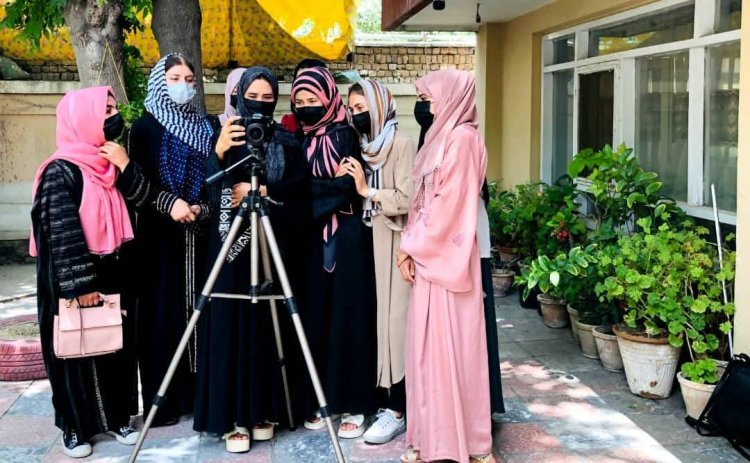Media Under the Grip of the Taliban; Restrictions on Journalists Intensify

Findings by the Afghanistan Journalists Center (AFJC) show that in the first six months of 2025, nearly 140 cases of violations against media freedom and journalists have been recorded — a 56 percent increase compared to the same period last year.
The center reported that these cases include beatings and threats, and that during this period, the Taliban arrested at least 20 journalists on charges of “propaganda against the regime.”
According to the AFJC, six of the arrested journalists were sentenced by the Taliban to prison terms ranging from six months to one year, and they are currently held in Pul-e-Charkhi and Bagram prisons. Additionally, three other journalists who were detained last year remain in custody.
Since the beginning of this year, the Taliban has restricted media activity in 19 provinces under its "Promotion of Virtue and Prevention of Vice" law, which bans the publication of images of living beings. As a result, 26 media outlets — including 23 local TV stations — have been forced to shut down.
Over the past six months, pressure on female journalists has also increased. In some provinces, under the same law, the Taliban has banned the broadcasting of women’s voices, reportedly labeling them as "awrah" (something that must not be heard).
Meanwhile, the Taliban’s Ministry of Information and Culture has introduced a new directive for the media, insisting that all political programs must be reviewed by the ministry before they can be aired. Additionally, all political commentators or analysts appearing on TV must be registered with the Taliban — unregistered individuals are not allowed to participate in media discussions or interviews.
Furthermore, any topic intended for political discussion must receive prior approval from the Taliban. Media outlets are also instructed to refer to the Taliban leader and other officials using respectful and honorific language.
The UN Assistance Mission in Afghanistan (UNAMA) has described these recent restrictions as violations of freedom of expression, warning that the already censored media environment is becoming even more restrictive.
Meanwhile, some journalists say that working in media is now more dangerous than ever, but they cannot abandon a profession they love.
One journalist, speaking anonymously, said they lack personal safety and have no legal body to file complaints with. They also complained about increased restrictions on access to information, saying these limitations are blocking their ability to perform journalistic duties.
"The Taliban does not allow us to do professional journalism. It has restricted the media’s scope of work, and day by day, outlets are shutting down. Most journalists have left their jobs out of fear and pressure, because everything is censored and we are not allowed to work the way a journalist should," they said.
Another journalist echoed the sentiment, saying journalism is not aligned with any group and the Taliban should view journalists as neutral actors and ensure their safety and access to work.
"Journalism is a neutral profession. Journalists should be supported, not restricted. These limitations are the reason why so many outlets have stopped operating and journalists are now unemployed. These problems must be resolved," the journalist added.
The Taliban had already imposed severe censorship on the media. News must reflect the group’s narrative, and journalists are not allowed to produce or air critical reports or commentary about it.
